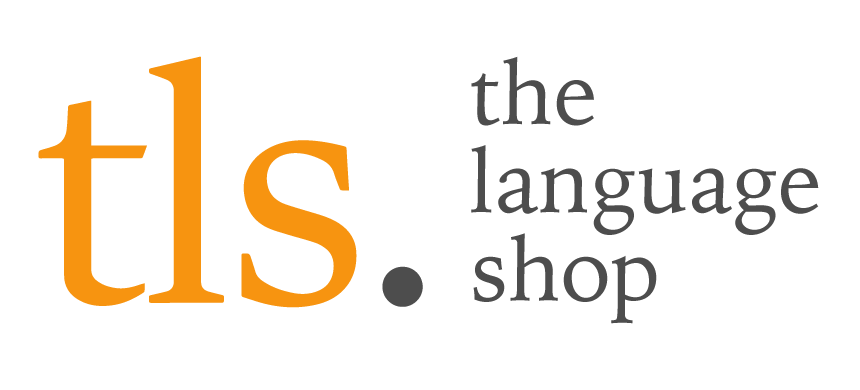your month ahead - important upcoming dates for your calendar
Sundown 10 March to sundown 9 April (subject to moon sighting) – Ramadan Ramadan is one of the most important times of the Islamic year. It marks the revelation of the Islamic holy book, the Qur’an, to the Prophet Mohammed. Muslims celebrate the Holy Month in a number of ways, including giving to charity (zakat), increased prayer and giving up bad habits. Ramadan is perhaps best known for the fast, which takes place during daylight hours. Most observant Muslims will refrain from eating and drinking from sunrise to sunset, for the entire month (elderly, menstruating and ill people, children and those travelling are exempt). Fasting can be very tiring and it’s a good idea to keep in mind that your Muslim friends and colleagues may be feeling the strain, especially as the month goes on. How to support fasting colleagues and linguists
- TLS will be supporting our staff to work flexibly during this time and have put in place processes to ensure the team are available to respond to your needs, However, please note there will be fewer interpreters available over this period so please try to book as far in advance as possible.
- If you are booking an appointment for a service user who may be fasting, consider whether the appointment need be face to face, or whether you could use a remote video or telephone option. These can also save you time and money. If the appointment is not time-sensitive, consider whether it could take place after Ramadan is over.
- If you have fasting colleagues, bear in mind that their energy levels and productivity may be better in the morning and wane towards the end of the day. Anything intensive is best scheduled for the morning hours.
- Be considerate about booking lunch meetings or any work events that have a focus on food. Think about whether these need to take place during Ramadan.
FREE online events
The Gender Penalty - Women and Inequity at Work - Diversity and Inclusion Leaders – Accelerating workplace inclusion (dileaders.com)
Promoting diversity and cultural sensitivity in social work Tickets, Wed 20 Mar 2024 at 11:00 | Eventbrite FREE WEBINAR: Driving Diversity and Inclusion: The Next 10 Years! Tickets, Thu, Feb 22, 2024 at 12:00 PM | Eventbrite February’s dates at a glance Religious/cultural 1 – St David’s Day, Christian1 – Nineteen-Day Fast begins, Baha’i3 – Sunday of the Prodigal Son, Orthodox Christian8 – Maha Shivratri, Hindu9 – Saturday of Souls, Orthodox Christian10 – Meatfare Sunday, Orthodox Christian10 – Ramadan begins, Islam14 – Nanakshahi (New Year), Sikh16 – Saturday of Souls, Orthodox Christian17 – Cheesefare Sunday, Orthodox Christian17 – St Patrick’s Day, Christian18 – Great Lent begins, Orthodox Christian19 – Feast of Saint Joseph, Christian20 – Ostara, Wicca and Pagan20 – Nowruz (New Year), Persian and Zoroastrian20 – Naw-Rúz, Bahá’í23 – Saturday of Souls, Orthodox Christian24 – Purim, Judaism24 – Holika Dahan, Hindu24 – Palm Sunday, Christian24 – Feast of Orthodoxy, Orthodox Christian25 – Annunciation to the Theotokos, Orthodox Christian25 – Annunciation of the Virgin Mary, Christian25-27 – Hola Mohalla, Sikh26 – Holi, Hindu26 – Khordad Sal, Zoroastrian28 – Maundy Thursday, Christian29 – Good Friday, Christian31 – Easter Sunday, Christian Awareness and events 1 – Zero Discrimination Day1 – Self-injury Awareness Day (Siad)1 – International Wheelchair Day3 – World Hearing Day6-8 – TUC's Women's Conference8 – International Women’s Day10 – Mother’s Day18-24 – Neurodiversity Celebration Week20 – Spring Equinox20 – International Day of Happiness21 – International Day for the Elimination of Racial Discrimination21 – World Down Syndrome Day24 – World Tuberculosis (TB) Day25 – International Day of Remembrance of the Victims of Slavery and the Transatlantic Slave Trade27 Mar - 2 Apr – World Autism Acceptance Week30 – World Bipolar Day31 – International Trans Day of Visibility
in other news: stories from the language industry and beyond
Reforms to encourage more students to take up language GCSEs
The government has introduced changes to modern language GCSEs, following consultation with a panel of experts. The new GCSEs will feature more commonly used vocabulary and be structured in a way that allows students and teachers to more easily track their progress.
Banks not legally required to provide Welsh-language services The Senedd, the Welsh Parliament, recently passed a controversial rule that banks would not be obliged to offer their services in the Welsh language. This followed HSBC axing its Welsh language phone service to customers. While the major parties agreed that Welsh language services were crucial, the ruling wasn’t passed as they felt other issues should take precedence.
language fact file: Punjabi
Spoken in: India and Pakistan.
Number of native speakers: 113 million.
Learn some: The general greeting, which you can use at any time of day, is ‘sat sri akaal’.
Fast facts:
- The region where Punjabi originates is called Punjab, which means ‘five rivers’: panj means five, aab means water. This refers to the rivers Beas, Chenab, Jhelum, Ravi and Sutlej, which give the region its incredibly fertile land, making it now as the wheat bowl of India.
- Punjab is where the Sikh religion was founded in the 15th century. It is home to the Golden Temple in Amritsar, the holiest site for Sikhs. Included in the temple is a huge langar hall, a place where hundreds are fed for free every day.
- Punjabi people have a reputation for being fun, lively and hospitable. An important word in the language is masti, which means 'intoxicated with life'.
the linguist's story - Parmjit Butler
Tell us about the work you do for TLS.
I am a freelance interpreter working for TLS. I have varied roles, from doing face to face, telephone and teams online meetings.
What's been your favourite project at TLS?
No one project – my favourite thing is the variety of meetings and calls I have to interpret.
What has been your biggest challenge?
My biggest challenge I would say is interpreting personal matters of clients, knowing they are going through challenging, stressful times and having wellbeing issues. It can become hard to switch off at times.
Can you tell us about a time your work has made a difference to someone’s life?
A few days ago I had to interpret for a young lady who was going through a very difficult domestic violence issue at home, and just to hear in her voice that she could speak out and somebody was going to listen and be her voice so she could try and get the support she needed... She was so thankful for me to be on that phone line.
Tell us something interesting about you.
I was born in England but my first language growing up at home was Punjabi, as my mother didn’t speak any English. I wish I had started interpreting a lot sooner in life, as I get a lot of joy from helping to speak for people with language needs. I feel as if I finally have found my forever job.
What are your ambitions for the next 12 months?
My ambition for the next 12 months is to work as hard as I can doing what I love. I get such a great sense of achievement doing this. I want to try and start doing some voluntary work too.
Session on cultural competency a big hit
We recently contributed to a training day, helping NHS staff to work in a culturally competent way with linguists. The training was delivered by Central and North West London NHS Trust Community Development Manager, Michelle Poponne, who is conducting a piece of work with the BME Health Forum on the subject.
On the day, the BME Health Forum gave a presentation, covering topics such as:
- Understanding differences in dialects – not all Arabic, for example, is the same.
- The importance of booking the right interpreter for the patient.
- Why the TLS bookings team will sometimes check if there are interpreter groups that a patient would prefer not to work with, for geo-political reasons.
- Why some service users do not want to have translators from their own community and why this could cause patients to disengage.
TLS supported the presentation and explained:
- The services we offer.
- How to book an interpreter.
- Best practice when working with an interpreter.
Customers who attended found the session informative and useful, one commenting: “I learnt so much from you both. I certainly believe it has helped the team to understand how vitally important it is that we get it right when requesting and working with interpreters, how best to access the interpreting service and how important it is to really listen to our patient’s needs.”
If your organisation is planning to run a session on interpreting, equality and diversity or accessibility, we are happy to help incorporate communication support into it. Speak to your account manager in the first instance.
How your views have changed VISTA
We launched our new VISTA bookings system in November last year and the reception has been very positive. But here at TLS we strive for continuous improvement! That’s why we have invited feedback on the system from all our customers.
We’re so grateful that many of you took the time to reach out, and are delighted to say that we have incorporated the following new features as a direct result of your comments:
- A new way to sign-up to fast-track registration is by providing a registered colleague’s email.
- Advanced search features to enable users to filter by language and service type.
- When creating a new booking, users can now specify whether they would like to be offered an alternative service type, if we are unable to offer the original request type.
- If booking on behalf of someone else, bookers can now add a contact email in addition to the requester. This person will receive all the necessary information directly. This cuts down on administrative tasks and streamlines communication about bookings.
Keep them coming! If you have any more feedback on VISTA, please get in touch by emailing bookings@languageshop.org
Your month ahead - important upcoming dates for your calendar
On the calendar
1 February – Time to Talk Day
Mental health charities Mind and Rethink Mental Illness launched Time to Talk Day to encourage us all to talk more about mental health and harness the real benefits of chatting – something many of us can get behind!
Freeing mental health problems from stigma is an important step in getting everyone the help they need, but it is only part of the answer. We know that many of your service users have profound mental health needs, and we provide specialist interpreters where those needs are compounded by communication barriers.
Make your interactions count
How do you connect with a patient when you can’t talk directly to them? TLS will never assign you an interpreter without the specialist skills for this work, but there are a number of ways to make your meetings more effective and comfortable.
- Ask your interpreter for a brief pre-meeting chat so you can share any relevant information, such as cultural norms around mental health. When the interpreter and provider work together as a team, the outcome is often improved for the patient.
- Never leave the interpreter alone with the service user. This is for their safety as well as to avoid any blurring of the boundaries in their role.
- Factor in some time for a debrief with the interpreter. As during a mental health appointment, it’s not just the words used but the way they are used that is important, a post-appointment debrief will give you both the chance to talk about how things were said, eg any peculiarities of speech.
In your diary
LGBT+ at Work Conference - Diversity and Inclusion Leaders (dileaders.com)
Inclusion, Equity & Diversity - beyond box ticking. Tickets, Tue 6 Feb 2024 at 09:30 | Eventbrite
February’s dates at a glance
Religious/cultural
2 – Imbolc/Candlemas, Wicca and Pagan
3 – Setsunbun-sai, Shinto
7 – Lailat al-Miraj, Islam
10 – Losar begins, Buddhist Lunar New Year Confucian, Daoist and Buddhist
13 – Shrove Tuesday, Christian
14 – Ash Wednesday (start of Lent), Christian Valentine’s Day, Christian Vasant Panchami, Hindu, Sikh and Jain
15 – Nirvana Day, Buddhist
18 – Zacchaeus Sunday, Orthodox Christian
22 – Feast of the Chair of Saint Peter, Catholic Christian
24 – Magha Puja, Buddhist
25 – Triodion begins, Orthodox Christian Lailat al Bara’ah, Islam
26-29 – Intercalary days, Baha’i
Awareness and events
1-29 LGBT+ History Month
1 – World Hijab Day
1 – Time To Talk Day
1-7 – World Interfaith Harmony Week
4 – World Cancer Day
5-11 – UK Race Equality Week
5-11 – Children’s Mental Health Week
6 – International Day of Zero Tolerance to Female Genital Mutilation
6 – Safer Internet Day
11 – International Day of Women and Girls in Science
12 – Red Hand Day for Child Soldiers
15 – International Childhood Cancer Day
17 – World Human Spirit Day
20 – World Day of Social Justice
In other news: stories from the language industry and beyond
US study reveals that language-based discrimination limits access to mental health services
A recent study in California showed the implications of not offering language support on access to mental health care. Using the example of Spanish, a very widely spoken language in California, the study demonstrated how difficult it was for service users to receive good quality care if they were not fluent in English. One of the report’s key findings was for interpreters to be included in healthcare planning as well as delivery.
UK Parliament Q&A on the Accessible Information Standard for public sector health providers
In December, MP for Crawley, Henry Smith, asked the Commons about levels of compliance with the Accessible Information Standard, a way of ensuring access to healthcare for those with communication needs. Click on the link above to read the response by MP Maria Caulfield, Parliamentary Under-Secretary (Department of Health and Social Care).
And finally…
Machine translation has come a long way, but this article about mistranslations spotted on holiday is a hilarious demonstration of how far it still has to go! Knowledge is powder…
Language fact file: British Sign Language (BSL)
Number of native users: There are more than 87,000 Deaf users, from a total of 151,000 users. (source: British Deaf Association)
Learn some: The easiest way to communicate with a Deaf person using BSL is to finger spell words. Have a go using the RNID BSL Guide:
https://rnid.org.uk/wp-content/uploads/2021/03/RNID_BSL_Finger_Spelling_Alphabet_Info.pdf
Fast facts:
- Signing between deaf and hearing people has been around for hundreds of years. The first recorded use of it in the UK is in 1324, when a deaf man named John de Orleton used signs to formally transfer property rights to a family member.
- BSL is the fourth most widely used language in the UK. However, just as with spoken languages, there are regional accents, so users from different parts of the country might find each other harder to understand!
- Although we usually think of hand gestures when we talk about sign language, BSL also uses facial expressions and body language. It has its own grammatical structures, which do not mirror those of the spoken language at all.
The Language Shop provides BSL interpreting. Ask your account manager if you would like more information.
The Linguist’s Story
Every month, we get to know a bit more about one of our linguists. This month, meet Sarah Meeks, who is a British Sign Language interpreter.
Sarah, tell us about the work you do for TLS.
"I work as a British Sign Language interpreter so I attend meetings/medical appointments, do stage work at events etc and a bit of performance interpreting too."
What's been your favourite project at TLS?
"My favourite booking was when a Deaf mother went into labour and a team of interpreters from TLS were on call for a week to see her through labour and delivery. Even though it was very hard work staying awake all night through the labour, being part of someone's magical journey of childbirth was an absolute honour. I'd like to say she named the baby after me but... haha!"
What has been your biggest challenge?
"It's always very hard when you have to interpret bad news. I do a lot of medical and I remember being in an ultrasound once with deaf parents who were told their baby had a hole in the brain and was not expected to live. That was heart wrenching and emotional but you have to be professional and deliver the message in the way the doctor intended, but always with empathy."
Can you tell us about a time your work has made a difference to someone’s life?
"I remember another medical booking with a man who was taking too many vitamin tablets and his potassium was so high they needed to drain his blood and give him daily blood transfusions immediately. It was very scary having to make sure I was interpreting correctly and to ensure that the Deaf person was understanding what the doctor was saying. I had built up a good relationship with the patient and although he was not a native BSL user and English was his third language, I was able to explain the complexity of the problem to him using visual vernacular. I asked him to relate it back to me so that I was assured that he fully understood. It was a shock to both of us that his life was in danger - the appointment had been a seemingly innocuous blood test but that appointment literally saved his life and he was so grateful to me for helping him understand everything. Often Deaf patients go to appointments and it's 50/50 whether an interpreter will be there. There is a big shortage of interpreters at the moment especially for face to face bookings so I was really proud that my work that day helped to save his life."
Tell us something interesting about you.
"I play women's baseball and was one of the first players to train with Great Britain before having my children. I have travelled the world and I used to be a DJ!"
What are your ambitions for the next 12 months?
"To get back into baseball when my 18 month daughter finally sleeps through the night, and to buy land and build my own home."
Book one of our BSL interpreters online now!









